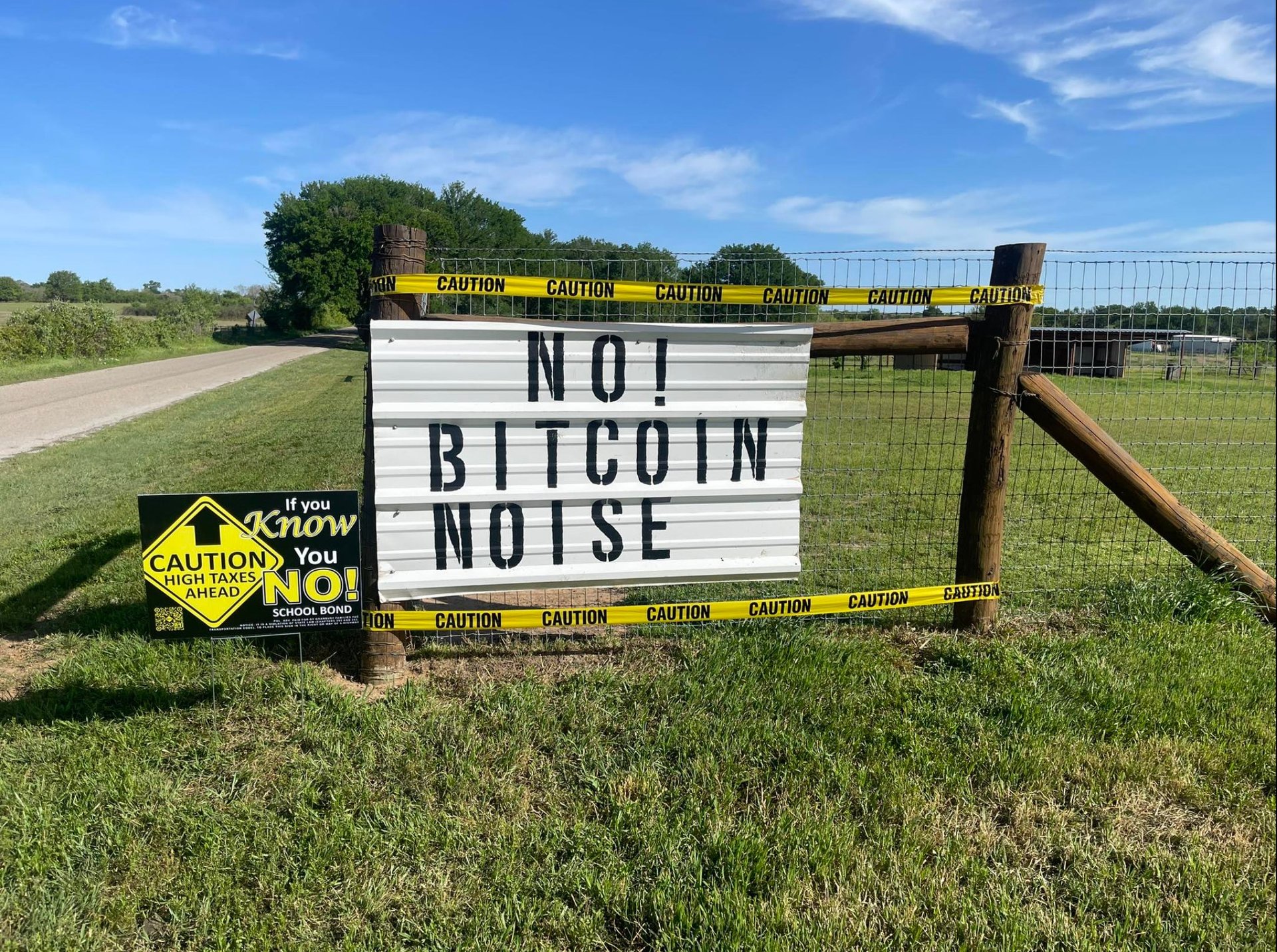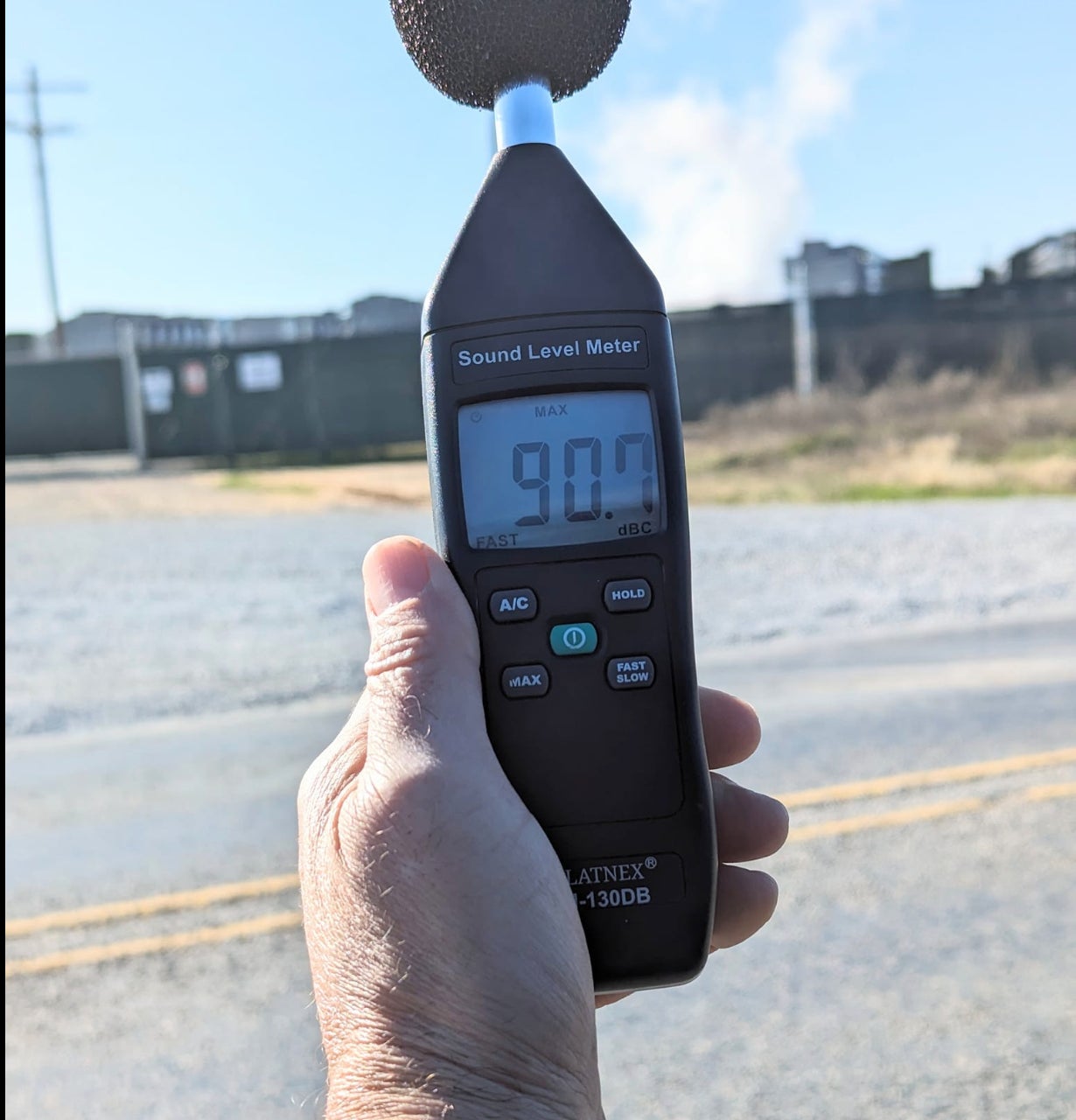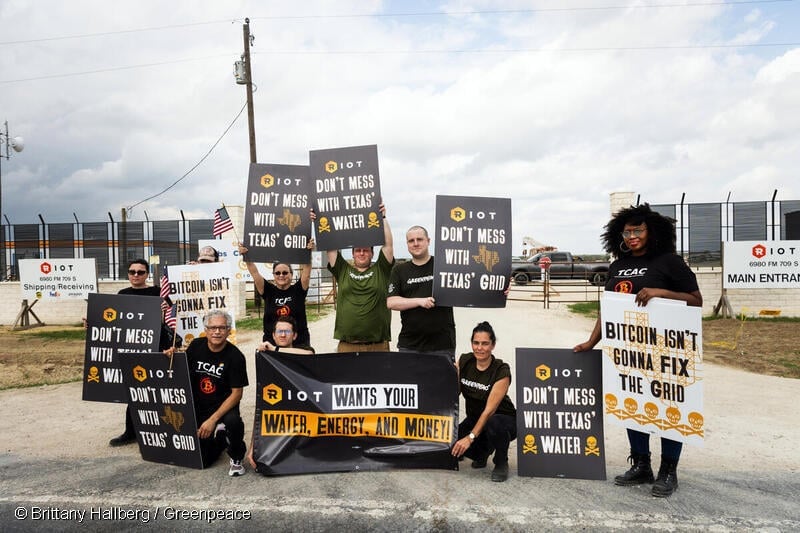Noisy Bitcoin miners are messing with Texas — and residents are sick of it
Hood County residents are suffering from hearing loss, headaches, and other health issues. This week, they testified in court.

Bitcoin is making noise in some parts of Texas — literally.
Suggested Reading
Hood County, Texas, is making headlines after residents have fallen ill due to the excessive noise produced by a Bitcoin mining site acquired by Marathon Digital Holdings earlier this year. Residents are experiencing hearing issues, headaches, dizziness, and sleep disturbance.
Related Content
Texas, which is considered a Mecca for Bitcoin mining, hosts 10 out of 34 major Bitcoin mines. In 2021, when China announced a crackdown on Bitcoin mining and trading, those mining companies relocated to Texas. The Lone Star State’s appeal stemmed from its affordable power, abundant renewable energy, and favorable regulatory environment. However, this rapid expansion also brought negative consequences for the residents.
Cheryl Shadden, a middle-aged nurse anesthetist, has lived in Granbury, a city near Fort Worth in Hood County, Texas, for 25 years. This week, she and other community members are serving as witnesses to testify in Judge Jeff Kelly’s courtroom that it’s become unbearable to live in the area due to the noise generated by Bitcoin mining.
Marathon Digital Holdings operates a Bitcoin mining center in the area, and the noise is mainly caused by the fan-based miners in the data center. Data centers need machines that provide computation power, and fans are used to prevent these machines from overheating. That’s a big problem for people like Shadden.
“It’s a loud roaring sound,” she said. “My ears are ringing, and my ears are buzzing.”

Shadden told Quartz she was diagnosed with hearing loss a few weeks ago. The health crisis isn’t just affecting her but her entire neighborhood. She mentioned that her 77-year-old neighbor, Larry Potts, who lives across the street, couldn’t sleep and started losing hearing in both ears. In February, he was rushed to Metropolitan Hospital, where he was kept alive by a special pacemaker.
According to the Hearing Health Foundation, sounds exceeding 70 decibels (dB) can cause hearing damage over time. In comparison, the sound produced by a single Bitcoin mining machine ranges from 70 to 90 decibels (dB). When Hood County residents tested the sound, they found that it was usually above 85 dB.
A representative from Marathon Digital Holdings told Quartz in an email that they had received complaints from Granbury residents and elected officials since taking over the operation of the site in April 2024.
“We have been pursuing several efforts to address concerns, including extending an existing sound wall to provide greater coverage around the site, removing 58 containers of fan-based miners to date, and converting containers to immersion cooling systems that reduce the noise generated by machines,” per the email.
In addition to noise complaints, residents are also concerned about the increase in electricity bills. Shadden claims that the region’s electricity bill has tripled, and one neighbor recently received a bill of $750.
Over the past few months, Texans have experienced power outages caused by hurricanes and extreme heat. There is growing anger among residents who are questioning why Bitcoin mining companies are using cheap electricity instead of prioritizing it for local residents.
A Marathon Digital Holdings representative wrote in an email to Quartz that the power used by their data center is “underutilized” energy. The power provider would otherwise be unable to sell it due to insufficient local demand.
“When there is increased demand by local residents, such as during adverse weather incidents like heat waves or winter storms, digital asset data centers like MARA’s power down so that the excess electricity we were using can be redirected to support the residents,” per the email.

Hood County isn’t the only place dealing with the negative effects of Bitcoin mining facilities. One of the world’s largest Bitcoin mining companies, Riot Platforms, came to Navarro County in 2022 due to its large-scale, cost-effective commercial electrical infrastructure.
Since then, residents have been worried about what the Bitcoin mining facility could do to the environment, energy resources, water supply, and electricity bills. Bitcoin mining is infamous for its energy consumption, as it uses roughly the same amount of power as Switzerland does in a year.
Navarro County resident Jackie Sawicky accused the Riot Platforms mining center of using gallons of water to cool down the computers.
“Bitcoin mining is so bad for Texas. This is gonna be terrible,” Sawicky said. She wants to prevent Navarro County from experiencing what Hood County is going through.
Riot Platforms did not respond to Quartz by the time of this article’s publication.
Sawicky said she is not opposed to technology, but the limited resources should be used wisely in the age of climate change.
“What they call proof-of-work in Bitcoin, we call it proof-of-waste,” she said.
Residents living near these facilities say they’ve received a lukewarm response from elected officials and authorities about their noise complaints. But county commissioners, including Nannette Samuelson, Dave Eagle, and Constable John Shirley, are beginning to throw their support behind those negatively affected by Bitcoin
In a fight for a better quality of life, locals in the area have launched petitions, created Facebook pages, and started nonprofits. They hope that their voices will be heard amid the noisy and loud Bitcoin.
